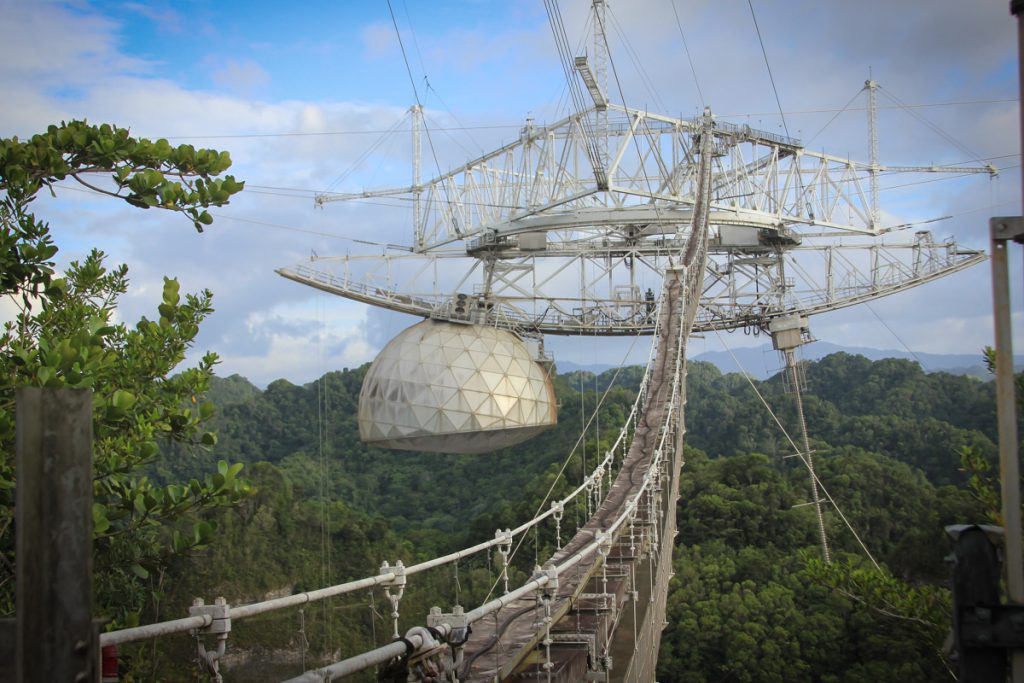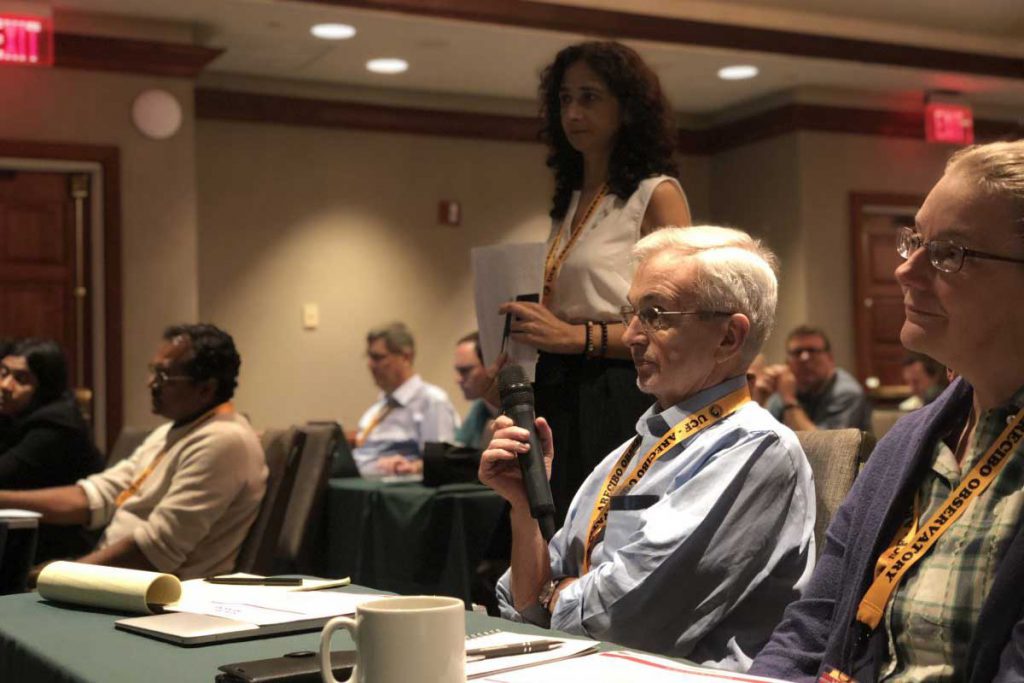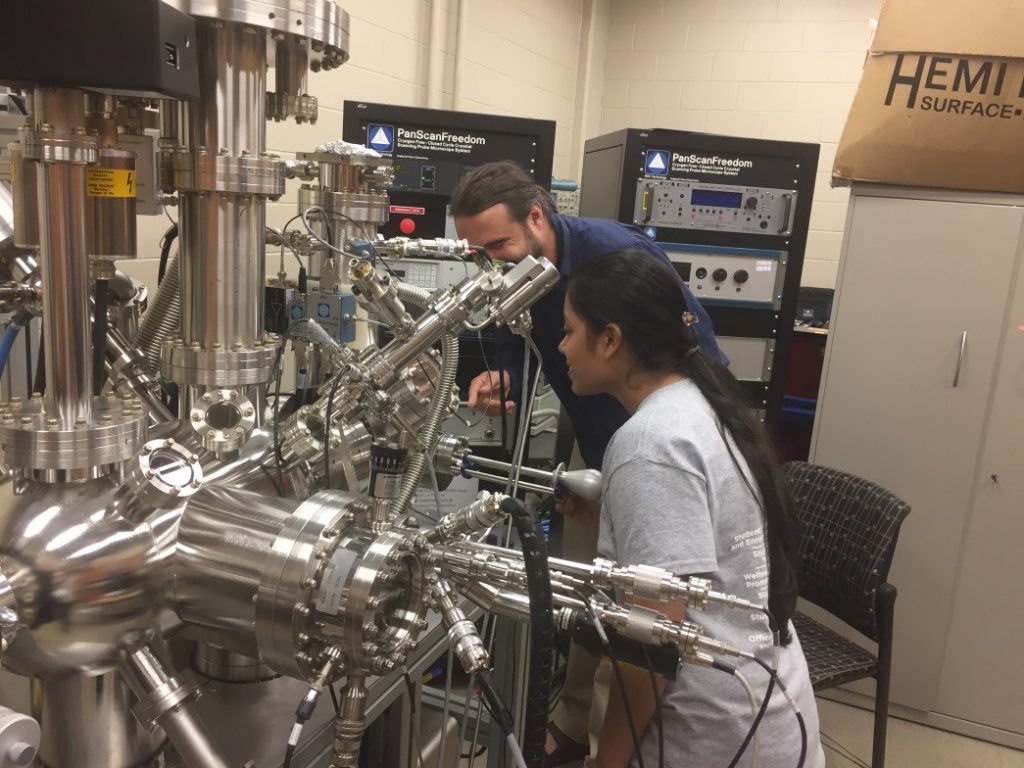Chair of UCF’s physics department part of discussion about how to best harness the power of the observatory for future space-related research.
BY ZENAIDA GONZALEZ KOTALA

The Arecibo Observatory and its researchers hosted scientists from around the world this week to discuss the future of research at the Puerto Rican facility under UCF management.
Planetary scientists, radio astronomers and atmospheric scientists discussed the status of the facility, what potential upgrades could mean for the future of the site and began mapping out a shared vision of how to best use the observatory for future space-related research during the The Pathways to the Future of the Arecibo Observatory Workshop.
The organizers hope that the input from the participants will help create tangible ways to involve a wider part of the scientific community in work being conducted at the observatory. The group also hopes the gathering will help lead to more educational outreach partnerships and programs.
More than 40 institutions were represented by the more than 100 people who spent three days in San Juan to share information about current research and trends. The program was also streamed, which drew another 100 scientists.
Among the many participants:
- Anthony van Eyken, a recognized expert in the fields of incoherent scatter radars and ionospheric physics and the deputy director of Geospace Studies at SRI
- Donald B. Campbell, a professor emeritus of astronomy at Cornell University and former director of Arecibo
- Joanna Rankin of the University of Vermont physics department, who has been observing at the Arecibo Observatory since 1969
- Carmen Pantoja, the first Puerto Rican woman to earn a doctorate in astronomy
- Eduardo Mucciolo, chair of the physics department at the UCF

There were also scientists based at Arecibo, representatives from FAST (Five-hundred-meter Aperture Spherical Telescope), the LMT (Large Millimeter Telescope in Mexico), the Green Bank observatory and the National Radio Astronomy Observatory.
The new management team at the observatory — UCF, Universidad Ana G. Mendez Recinto de Cupey (UAGM) and Yang Enterprises, Inc. (YEI) — organized the event. The Puerto Rican Science Technology and Research Trust Foundation contributed to make the event happen. The observatory is a National Science Foundation-funded facility.
“We are excited to have such an extraordinary group of researchers supporting this Futures Conference” says Francisco Cordova, the director of the facility. “We are doing a lot of listening. The input from long-time Arecibo users and community stakeholders on short- and long-term science objectives is critical for the next 15 years of cutting edge science at the Observatory. Working together we will be successful not just at the Arecibo Observatory, but also in contributing to the advancement of science in the coming decades.”


